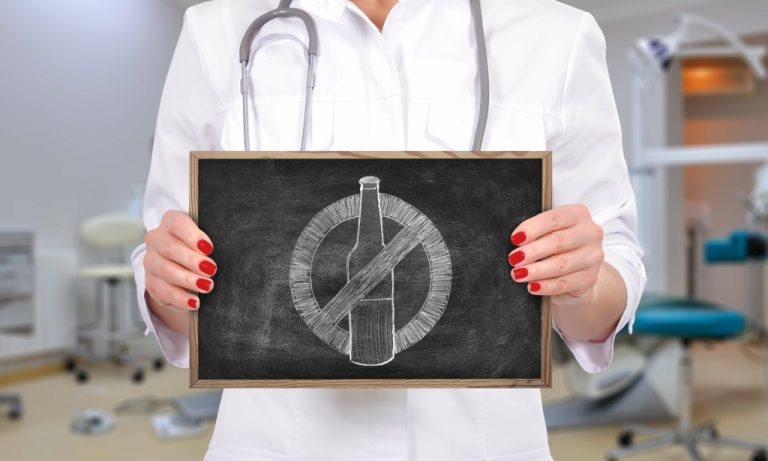Content
If you or someone you know has a drinking problem, seek help. The long-term effects of alcohol use disorder and alcoholism can be devastating. This is why alcohol use causes feelings of lowered alcohol overdose inhibitions, relaxation, and sedation. The excess GABA can also cause impaired movement, slowed breathing, irregular heart rate, and a lack of automatic response to things like choking.

However, a person can feel the effects of alcohol abuse and potentially trigger alcohol poisoning, even after they’ve stopped drinking. Your BAC levels keep increasing for up to 40 minutes after your last drink. Another contributor to developing alcohol poisoning happens when a person mixes alcohol with other substances.
Programs and Classes
Alcohol poisoning can be life threatening and usually requires urgent medical treatment. Includes detox and prescription opioid or heroin addiction treatment. If they were using other substances while drinking alcohol. If you or someone you love is struggling with a drinking problem, don’t be afraid to ask for help. Be ready to provide emergency medical responders with information about the person, what happened and other details you may remember.
- However, severe alcohol overdose may cause seizures, resulting in brain damage if oxygen to the brain is cut off.
- The more alcohol you consume, the greater the quantity that enters your bloodstream.
- In general, however, drinking large amounts of alcohol is dangerous for anyone and can lead you to overdose on alcohol.
- One common sign of alcohol poisoning is a change in mental state.
Celebrating at parties, cheering a favorite sports team, and enjoying get-togethers after work are common ways to relax or be with friends. For some people, these occasions may also include drinking—even binge or high-intensity drinking. Drinking a small amount can help people feel relaxed, but too much, too often, can be harmful for health. Medical News Today has strict sourcing guidelines and draws only from peer-reviewed studies, academic research institutions, and medical journals and associations. We link primary sources — including studies, scientific references, and statistics — within each article and also list them in the resources section at the bottom of our articles. You can learn more about how we ensure our content is accurate and current by reading our editorial policy. It is important to keep hydrated and avoid drinking any alcohol. Check on sitemap.
Alcohol poisoning
You can prevent an alcohol overdose by limiting your alcohol intake. You might consider sticking with one drink or abstaining from alcohol altogether. If you suspect an alcohol overdose and the person is unconscious, do not leave them alone.
- Helping states and communities measure binge drinking and related harms, including alcohol poisoning.
- For the sake of children, it is vital to store alcohol in positions that are out of reach to them.
- The Mayo Clinic warns that trying home remedies will not help you combat alcohol overdose.
- Every year, at least 2,200 people die from alcohol poisoning.
- Through strategic marketing campaign concepts, Alyssa has established Banyan as an industry leader and a national household name.
- According to the National Institutes of Health , in 2008 there were 29,000 alcohol overdose hospitalizations for young adults ages 18 to 24.
Having a high tolerance for alcohol or drinking quickly can put you at increased risk for an alcohol overdose. If a person is unconscious or lying down, roll him or her onto one side with an ear toward the ground to prevent choking. Know the danger signals and, if you suspect that someone has an alcohol overdose, call 911 for help immediately. Do not wait for the person to have all the symptoms, and be aware that a person who has passed out can die.
Who Is At Risk?
Individuals who engage in binge drinking or high-intensity drinking. When young adults head off to college and live on their own for the first time, they feel more free and independent. Social events, sports games and other gatherings are several activities that include heavy alcohol consumption and binge drinking. Students https://ecosoberhouse.com/ may face peer pressure to participate in drinking games to feel the effects of alcohol much faster. Alcohol overdose is preventable on an individual and societal level. However, death is not the only consequence of excessive drinking. When it gets to the point that someone is wondering “Can you overdose on alcohol?

But when blood alcohol levels are high, your overwhelmed liver can’t remove the toxins quickly enough. Cleveland Clinic, healthcare providers can pump the stomach of a patient who has overdosed on alcohol. This process helps clear the stomach of toxins from the substance.
This means you should be carefully monitored in a healthcare facility where medical professionals can administer therapies you will need, such as oxygen therapy. Other alcohol overdose treatment involves administering fluids intravenously so that you don’t become hydrated. You also may need vitamins and glucose so that you can avoid the most serious complications of alcohol overdose. At this point, you must avoid alcohol by all means necessary. If you observe these alcohol poisoning symptoms in someone, it is imperative that you seek emergency medical care as soon as possible. You will need to be prepared to tell a hospital when the person overdosing was drinking, what they drank, and how much. And remember—you can avoid the risk of an alcohol overdose by drinking responsibly if you choose to drink or by not drinking at all.
- If BAC is high enough, it can impair physical functions such as breathing and the gag reflex (that prevents people from choking.
- Lesbian, gay, bisexual and transgender individuals are at a greater risk for alcohol addiction than those who are heterosexual.
- Expanding access through the Affordable Care Act to new health insurance plans to cover alcohol screening and brief counseling.
- BetterHelp Online Therapy – BetterHelp offers online therapy services from licensed professionals through an easy-to-use website and app.
But if you know a family member or a loved one at risk of alcohol overdoes because of excessive drinking, we at Allure Detox can get them on the right track. If you or your teen has been treated for alcohol poisoning, be sure to ask about follow-up care. Meeting with a health professional, particularly an experienced chemical dependency professional, can help you prevent future binge drinking. On the other hand, younger individuals like teens and young adults can also be at high risk for alcohol overdose due to the popularity of binge drinking in these age groups. Arguably the most concerning symptom of alcohol overdose is cardiac arrest.
Risk factors
Ketamine has been explored as a treatment for depression and other conditions. Now, researchers say it may be helpful for alcohol use disorder. Healthline has strict sourcing guidelines and relies on peer-reviewed studies, academic research institutions, and medical associations. The liver metabolizes the alcohol, but it can only break down so much at one time. What the liver can’t break down is redirected throughout the rest of the body. Do not leave an intoxicated person alone, as he or she is at risk of getting injured from falling or choking. While there is no absolute cure for a hangover, many methods can help relieve symptoms.
How do you pass a breathalyzer the next morning?
You can beat a breathalyzer by hyperventilating, exercising, or holding your breath before you blow. Fact: An often-cited decades-old study found that hyperventilation and vigorous exercise did indeed lower subjects’ BAC readings by as much as 10%.
